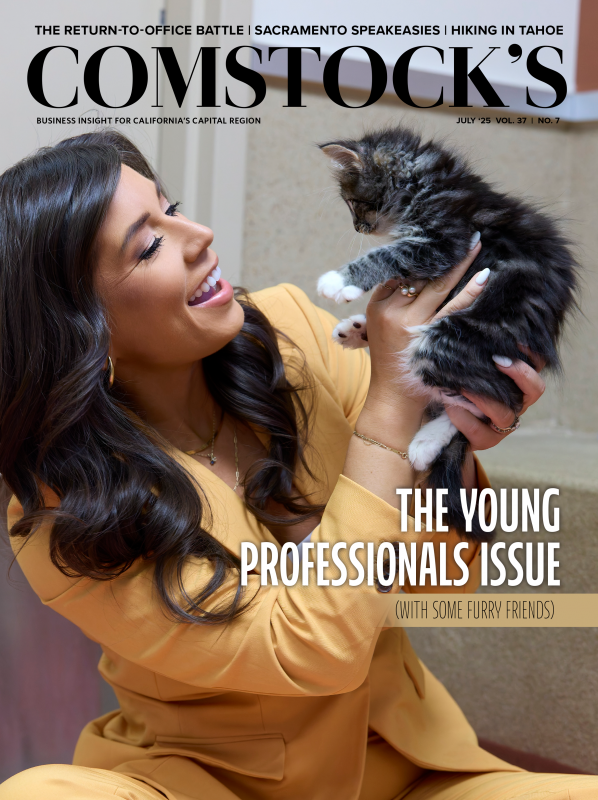In a moment of either exasperation or truth seeking, Dr. Sigmund Freud, the father of modern psychiatry, asked, “What does a woman want?” Today, that question needn’t be gender related. It might be more appropriate to ask, “What does the new generation — the youngest segment of the workforce — want?”
There are enough studies out there to suggest the answer is far more complex than the stereotypes favored by comedians and some pundits, such as: They don’t want to work very hard; they don’t want to work at all; they want to be able to work 100 percent of the time from home (and sometimes, their parents’ home); before they even begin their jobs they want to know the company’s policy on how much time off they’ll be entitled to — and how soon after starting.
Young people today who do fit those stereotypes cited above often simply don’t know what they want, particularly in the emerging AI economy. My granddaughter gave her high school graduation speech, and the main part of it addressed the troubling fact that she and many of her friends didn’t have a clue about what they wanted to do, what they wanted to become, and even whether or where they wanted to go to college. In my granddaughter’s case, a year after graduation, she’s decided to go to a university in Spain and has spent the past three months in a language immersion program there. Good for her!
Frankly, it bothers me to hear young people being called out as lazy or aimless — especially because so many of them are genuine go-getters, and they want to have an impact and “do good.” In this issue, as we do each year, we’ve found 10 great examples to spotlight. And please be assured there were a lot to choose from.
At this magazine alone, a sizable percentage of our staff and contributors are in their 20s, 30s and early 40s. As you can imagine, working in a business like ours — which lives on deadlines, sometimes rapid changes, long hours and laser focus — is not for loafers.
To be sure, young people today want their jobs to have certain options. Various studies suggest these include job flexibility, such as telecommuting, and less rigidity about when the workday starts or ends. They may also have a better sense of balance, as in keeping their work and home life on a more even keel, than many of us had — or were able to have, given the kinds of jobs we had and what it took to keep them and win promotions.
I recently read a report by FlexJobs, which helps people find work they can perform without heading into offices outside of their homes, that revealed almost three-quarters of so-called Gen Z employees chose flexibility as their most cherished work benefit. They also expressed a desire to have the capacity to change the arcs of their careers — significantly, without leaving their current employer. I think this indicates that some of those workers might be able to do more than what they were hired for, not less, possibly in reconfigured jobs.
On the negative side, young professionals who feel they’re emulating their predecessors may end up working too long and too hard, feeling that if they don’t they’ll not only miss out on getting promoted but also might lose their jobs — always worrisome in an uncertain economy.
To prepare this month’s column, I reached out to a number of business colleagues of all ages. The consensus seemed to be that young professionals are willing to work hard — if the task makes moral as well as financial sense, if their work is appreciated and if their personal lives are taken into consideration — in short, a holistic approach to hiring and keeping good workers.
They’ve also been through a lot more than we may recognize. As public relations executive Christi Black-Davis, a longtime friend and survey respondent put it, “My observation is that they have been emotionally and cognitively impacted by the two decades of geopolitical events such as 9/11, recessions, attention to systemic racism and misogyny, U.S. political division, lack of trust in government, climate change and dependence on social and digital communications.” Not to mention a global pandemic as they were just starting out in their careers.
If it’s any consolation, one thing that young professionals have going for them is precisely their youth. They need to calculate the years they likely have ahead of them and, if not make rigid plans for those years, acknowledge to themselves that time could very well be on their side. These days, we see people switching jobs and careers in middle age and beyond, sometimes as a corrective to a life they felt they misspent in a job they never liked or simply because they still feel healthy, want to learn more things or feel they have a passion they never pursued and now decide to.
I wish all of the individuals we recognize in this issue a life of continued questioning, dreaming and, most important of all, doing. It’s worked for me and for so many people I know and admire. For many of my contemporaries, let’s not forget we were once young professionals ourselves.
What do you think?
Winnie Comstock-Carlson
President and Publisher
–
Stay up to date on business in the Capital Region: Subscribe to the Comstock’s newsletter today.





